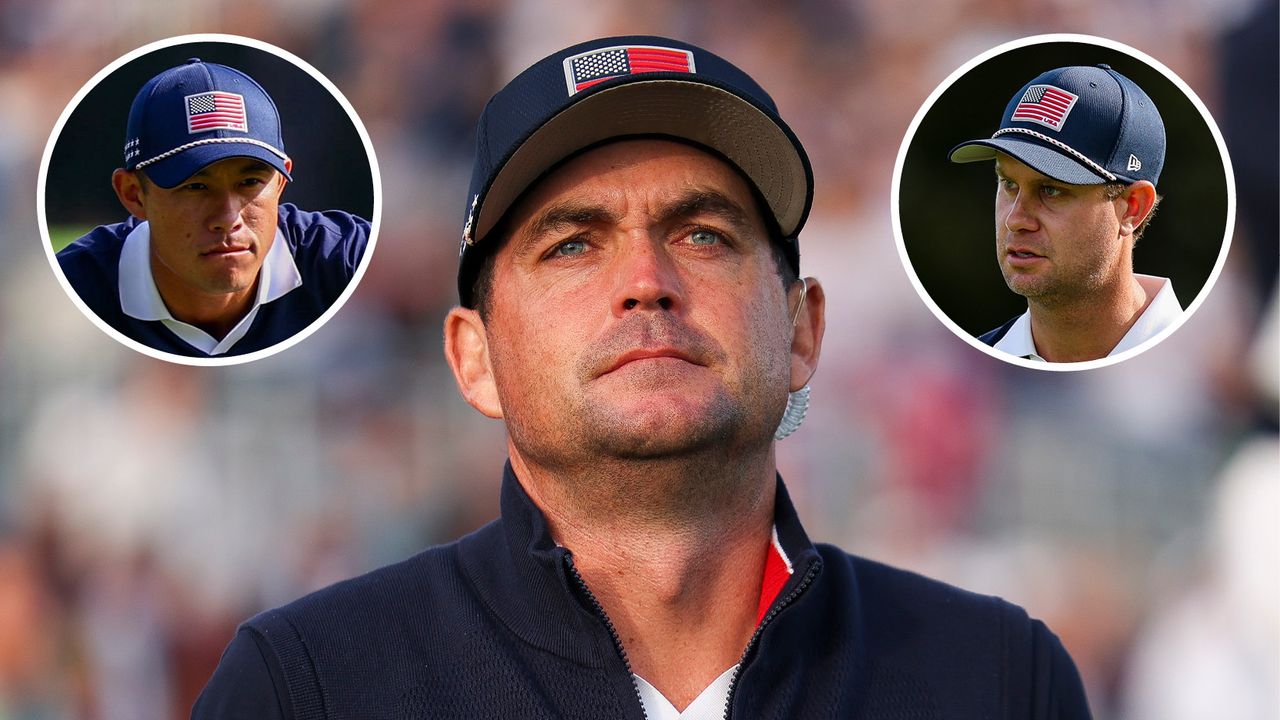
Selecting the right partnerships to fight for points across the first two days of a Ryder Cup is what makes or breaks the legacy of the men put in charge.
It is a complicated business and involves so much input in terms of data, historical performances or sometimes just gut feel. If you get it right, you're seen as a genius. Make the wrong call and your credentials can be torn apart.
European captain, Luke Donald has perhaps been fortunate in that he has a handful of pairings which appear a match made in heaven - the likes of Rory McIlroy and Tommy Fleetwood or Jon Rahm and Tyrrell Hatton.
But, at the same time, one of the most successful players in European Ryder Cup history has had the conviction to send his big guns out together - calls which have paid off in an unquestionable way through the first three sessions.
He and his team have also worked extremely hard to find unique pairings that were not as obvious as others but have still proved fruitful - i.e. Viktor Hovland and Robert MacIntyre.
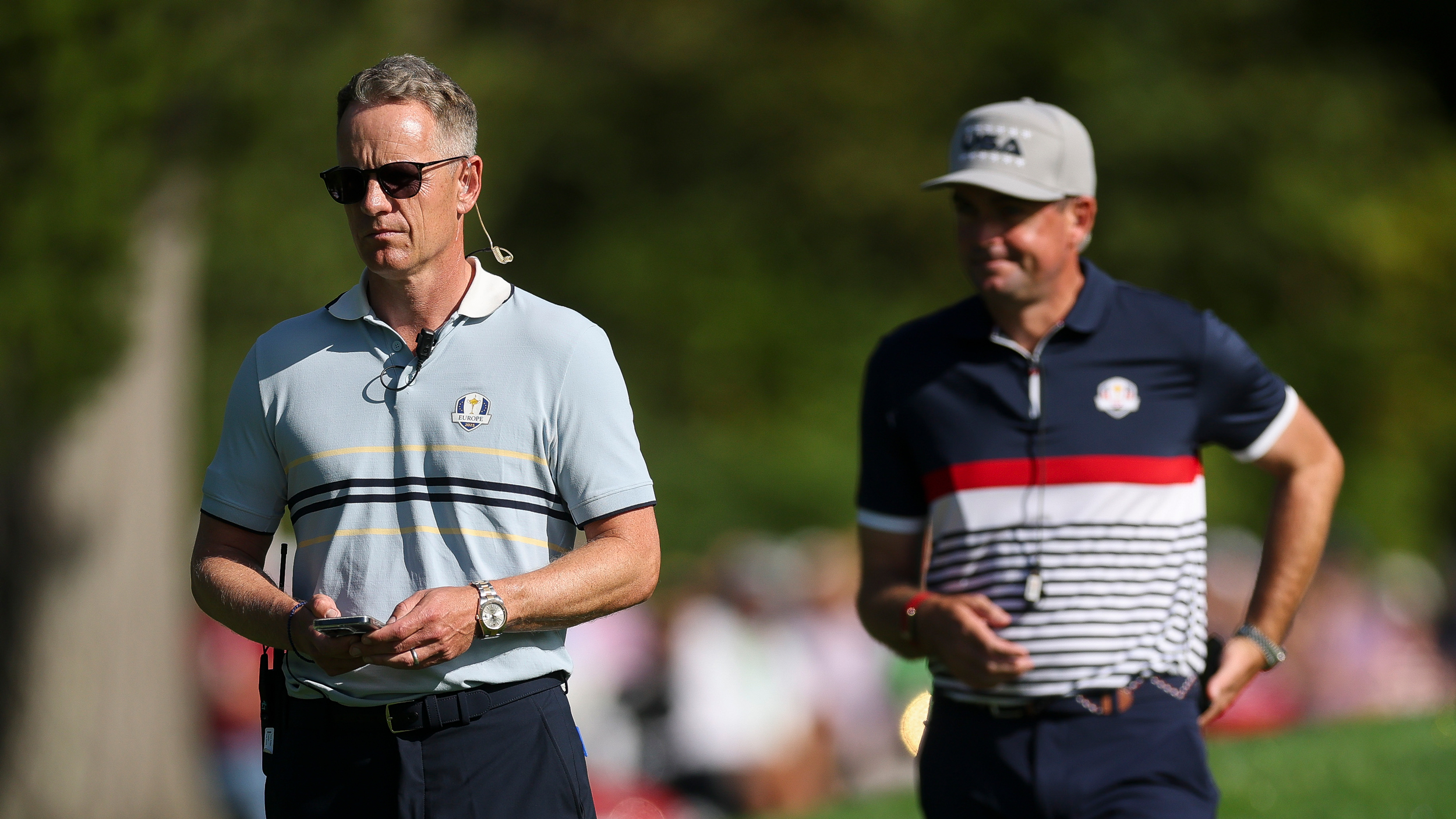
On the flip side, at least a couple of Keegan Bradley's pairings have fallen flat on their face. None more so than the duo of Harris English and Collin Morikawa.
Statistically the least optimal pairing for Team USA out of 132 different combinations (according to datagolf) pre-event, English and Morikawa were thumped 5&4 by 'Fleetwood Mac' in the opening session, suggesting their chemistry might not have been worth the risk after all.
However, speaking after a humbling first day, the US captain revealed he was going to send them out again on Saturday and stated he had full confidence in the Morikawa/English pairing.
Bradley said: "Well, we have a plan of what we're going to do. They beat us today, but you know, we're really comfortable with our plan. We're really comfortable with those two players.
"Excited who they are playing tomorrow. Be an exciting match, and we're sticking to our plan.
"We're not going to panic. We're not going to panic and make those sort of mistakes. We're going to stick to what we know. We have a lot of confidence in them."
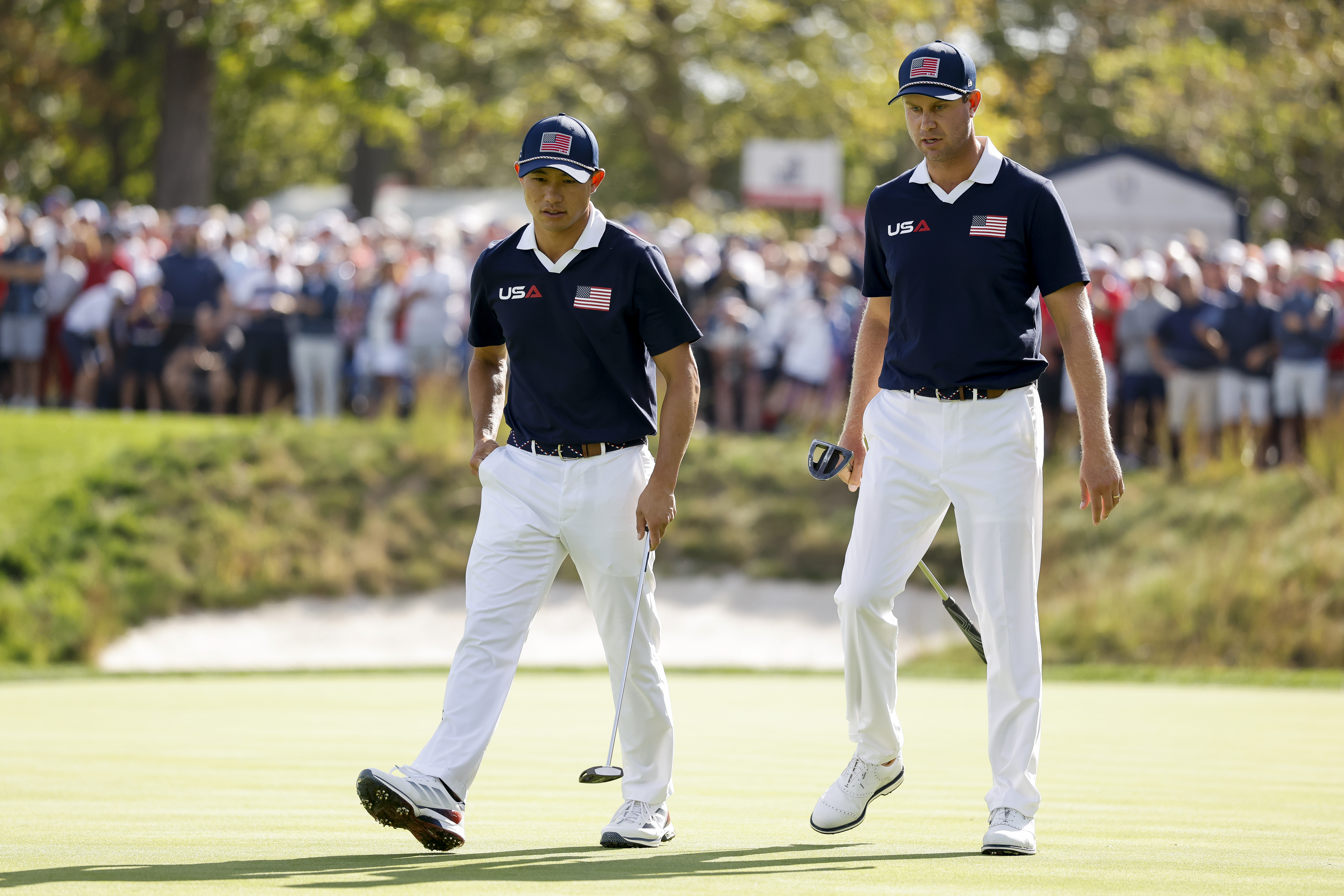
Imagine everyone's surprise, then, when Fleetwood and McIlroy triumphed once again - this time 3&2 after wasting two chances to put the match away earlier.
What had Bradley and his roster of assistants seen in the pair to make him believe they were the right two to roll out on Friday morning? And why on earth did he not adapt and swap out one or both for, say, US Open champion JJ Spaun who had shown glimpses of promise on his debut and one of the most in-form players on either side, Ben Griffin?
Asked on Friday evening whether the US team's analytics suggested they work well together or if gut feel had something to do with the call, Bradley replied: "I would say it's a little bit of both.
"They were really bummed out that they lost their match today. They were eager to get back out on the course, and that's why we did that."
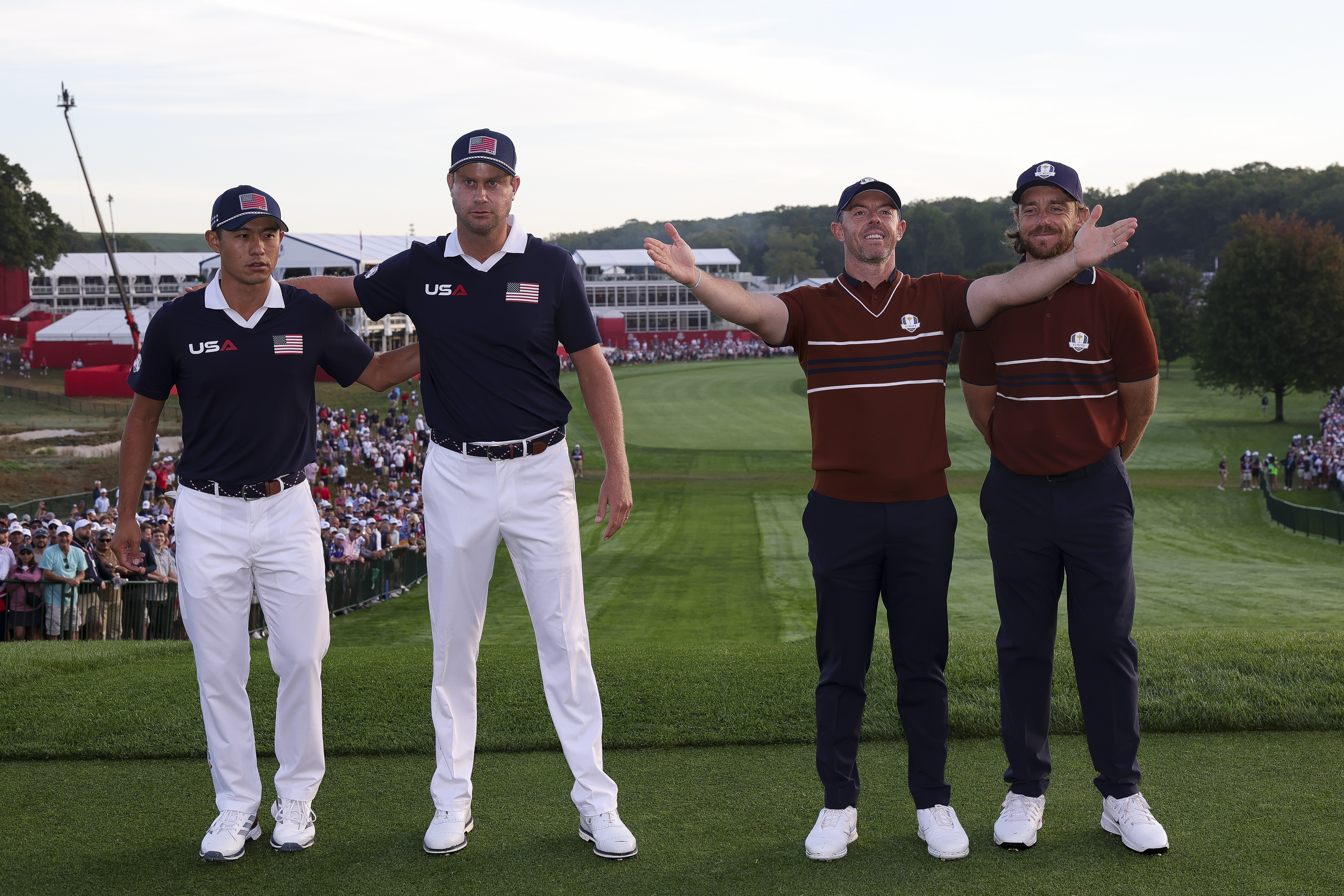
Surely you turn around to them and say: 'sorry fellas, I know you want to put this right but I made a judgement call and it hasn't worked. Here's what we're going to do instead.'
It's not a sign of weakness to change your mind. It is arguably a sign of strength and intelligence to recognize when a risk hasn't paid off and make changes. That's what Bradley should have done after Friday's play.
I completely understand the argument that they were beaten by the better duo and almost anyone would have struggled to push Fleetwood and McIlroy in either session - especially given the form they were in.
But, the US pair hardly created any chances or put any pressure on the European duo across the two sessions. Morikawa just didn't seem to be playing very well and English appeared hot and cold throughout.
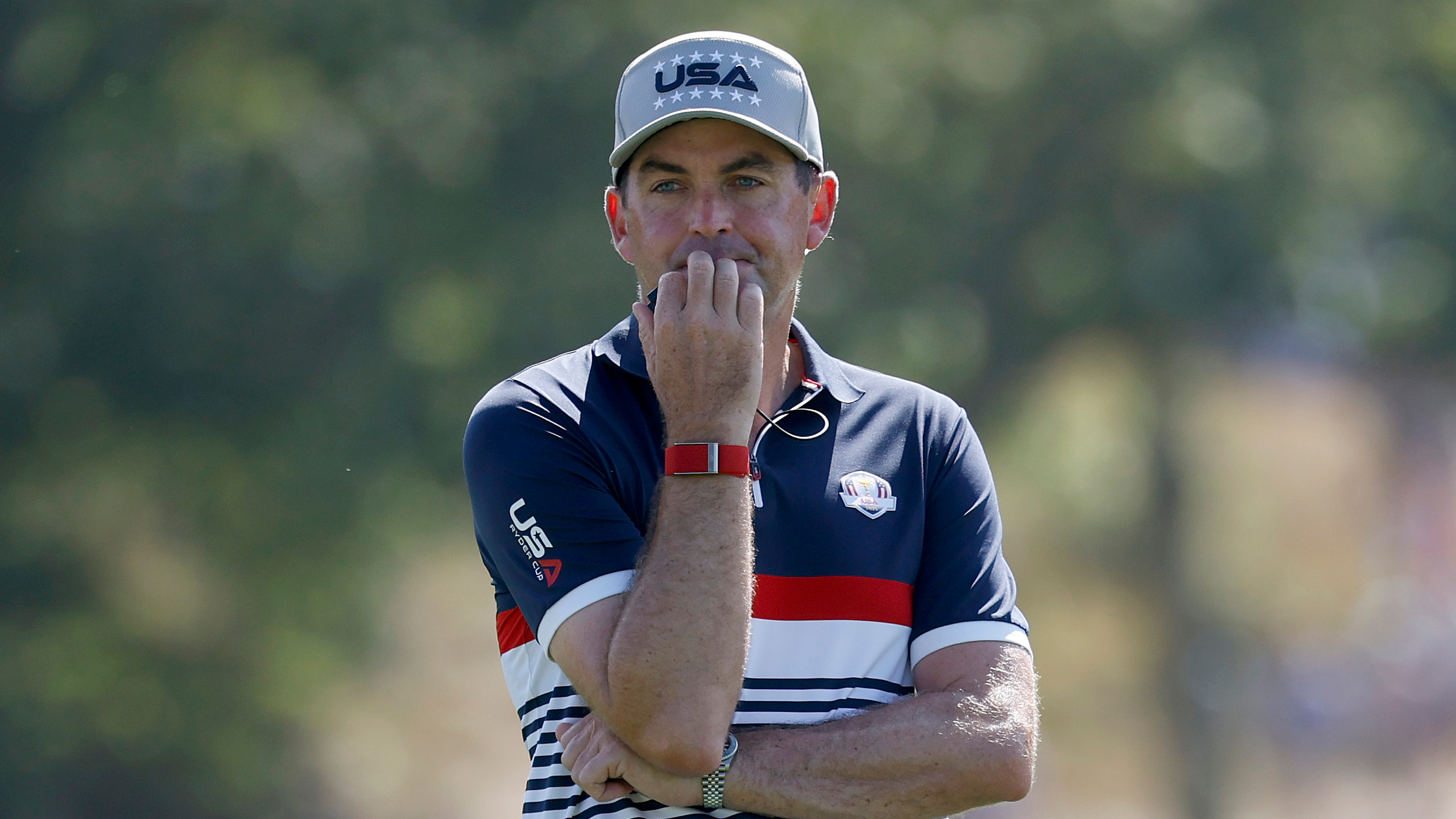
Until McIlroy became a little greedy with his would-be winning putt on the 14th on Saturday, the Americans had only won two holes out of a possible 27. It was one a day. That pairing was not working and it didn't seem like it was ever going to.
As with anything like this, the true magnitude of Bradley's decision will only be realized once the music has stopped and the fate of the Ryder Cup falls one way or the other.
But, as it stands, it looks to be one of many reasons why the USA's wait to land their hands on the trophy might go on for at least another two years.
What do you think about Bradley's decision to field Morikawa and English together on both Friday and Saturday? Let us know in the comments.







